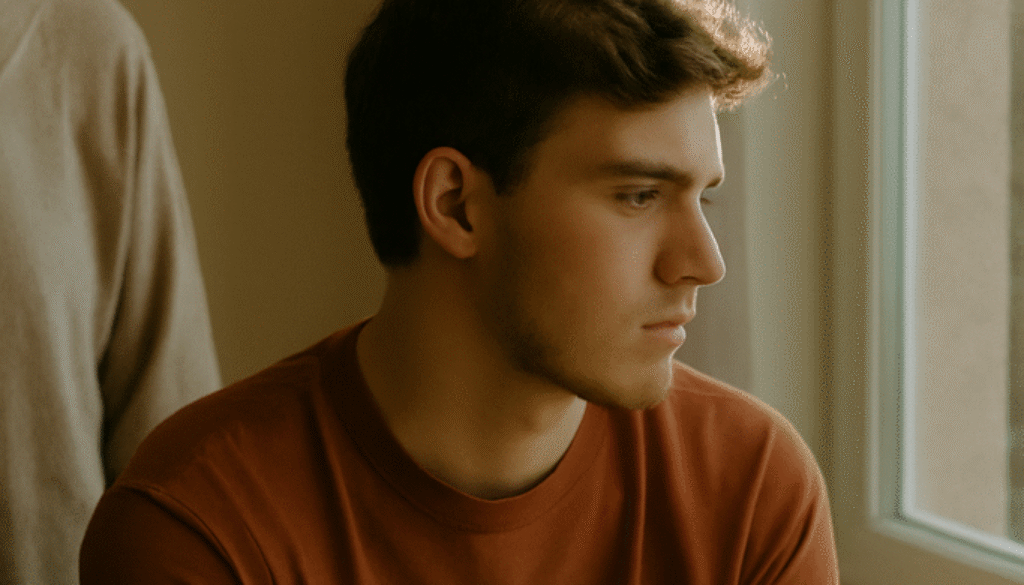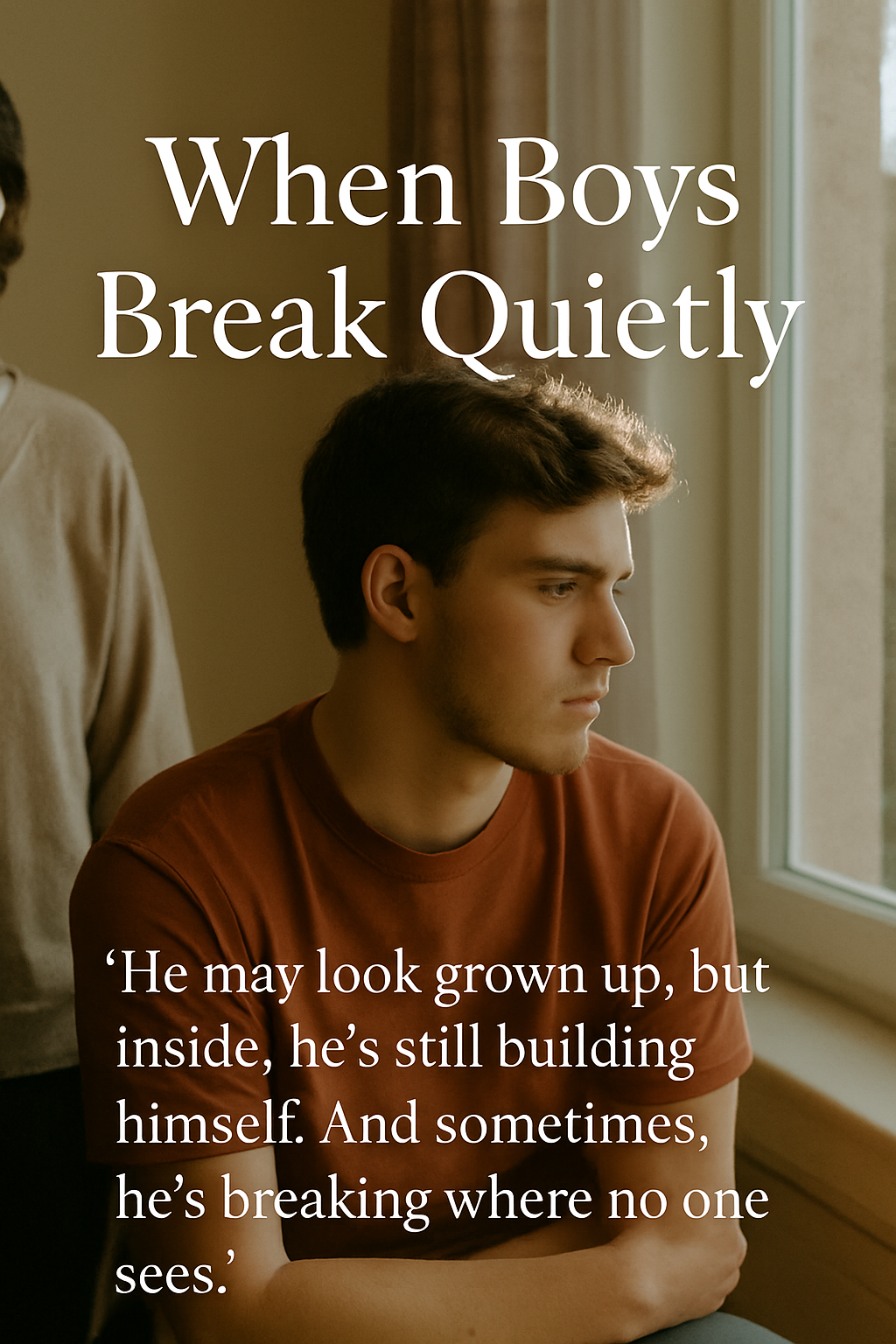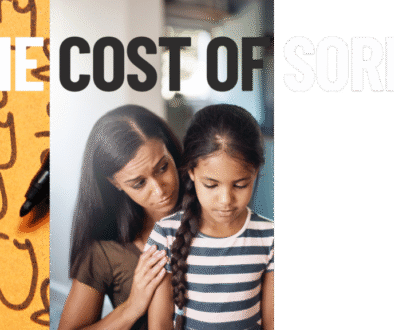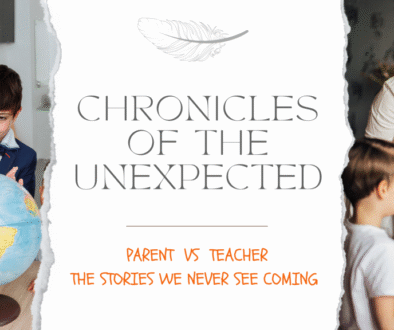

When Our Sons Break and We Don’t See It
When Boys Break Quietly
“He may look grown up, but inside, he’s still building himself. And sometimes, he’s breaking where no one sees.”
I usually write and reflect from my deep roots in early childhood education—about the little ones, their gentle rhythms, their unspoken truths. But today, I invite you to zoom out and look at another stage of life. The one we often misjudge, oversimplify, or ignore. The teenage and early twenties—the years when our boys begin to look like men, but inside, they’re still forming, fumbling, and sometimes… quietly falling apart.
We assume that when they stop holding our hands, they stop needing our support. That their deep voice means deep understanding. That their height and hustle mean they’re ready to carry the emotional weight of life. But the truth is far more complex, and often, far more silent.
Still Kids — In Grown-Up Suits
Science tells us that the brain continues to develop until around 25 years of age. The parts responsible for emotional regulation, long-term decision-making, and impulse control are still maturing. So that young man who studies hard, argues with passion, or sits silently in his room, isn’t fully equipped yet to handle the full emotional and social weight of life. And yet, life often doesn’t wait.
Hormones are shifting, identities are forming, and the outside world—with all its opinions, pressures, and comparisons—moves at full speed. At this age, they may look grown-up, but inside they’re still figuring out how to be, how to belong, how to breathe under pressure. And often, they don’t tell us when it gets too much.
The Weight They Don’t Show
Some families go through unpredictable financial struggles, frequent changes in lifestyle, or periods where comfort feels like a privilege, not a given. When sons grow up in such spaces, even if the love is abundant, the stress is absorbed deeply. They carry an invisible responsibility. Many of them feel they have to ‘fix it’—be the one who changes the story. That drive can be powerful. But it can also be overwhelming.
Today’s young adults are growing up in a world where peer pressure doesn’t just come from the classroom—it comes from every swipe on social media, every success story they scroll past. A friend who travels, another who earns early, one who bought a house—these things quietly hurt when a child is trying to understand why their reality looks different.
They don’t always voice this. Instead, it comes out as frustration, silence, or physical symptoms. One of the most common things many young men report—but rarely speak about publicly—is a strange tightness in the chest. Like something squeezing their heart. Breathing difficulties without any diagnosed issue. Fatigue without physical reason. Many studies today show a strong link between emotional stress in young adults and real physical symptoms, including heart palpitations, tension in the chest, shortness of breath, and panic-like sensations.
What We Must Learn as Parents (Even the Good Ones)
Sometimes we think that because we’ve done the “right things”—provided warmth, education, care, support—our sons must be okay. But even in loving homes, boys often bottle things up. Not because they don’t trust us, but because they don’t want to add to our weight. Because they believe they need to be strong. Or because they feel ashamed of not being able to carry it all.
That’s when we must remember: they don’t need perfect parents—they need present ones. They need someone who can pause, soften, and look at their heart before their habits.
And while we’re at it, we must also unlearn the habit of comparing their world with the one we grew up in. So often, we say: “When I was your age, I just dealt with it. Why can’t you?” But the world they are growing up in is not the one we knew. The pace is faster, the noise louder, the standards harsher. Their daily environment is wired with constant connection, exposure, and silent competition. What felt difficult to us might feel impossible to them—and that doesn’t mean they’re weaker. It means they’re navigating a different storm, and need different kinds of shelter.
And in the aftermath of their mistakes, we must be gentle. Not every misstep needs a lesson. “If you had just listened, this wouldn’t have happened” may come from a place of care, but it often sounds like blame. Truthfully, we can’t be sure that things would have gone differently. What they need in those moments is not a rerun of advice, but the trust that their judgment is still in progress—and that we believe they’ll get better at using it.
This means:
– Listening beyond what is said.
– Sitting with their silence, not rushing to fill it.
– Not turning every emotional moment into a motivational speech.
– Letting them cry if they must—and knowing it’s not weakness.
– Talking not only about achievements but about fears, failures, frustrations.
– Not tying their worth to productivity or marks or future salaries.
Glass, Not Granite: Handle With Care
This phase of life isn’t just about growing up. It’s about surviving the mental maze of expectations, doubts, and the hunger to “be someone” in a world that moves too fast. Many of our sons are quietly wondering: will I make it? Am I enough? Can I bring ease to my family one day? Will I ever rest?
And when they don’t see immediate answers, some of them break—not loudly, but slowly.
So treat their hearts like glass, not granite. Not because they are fragile forever, but because how we hold them now will shape how they carry themselves later.
Final Thought (From One Mother to the World)
Now, of course, all of this is easier said than done. Even when we know better, parenting often happens in real time, with no script and very little pause button. I’ve caught myself, too—speaking from the spot of stress, reacting before breathing, or throwing in that “I told you so” sentence even though I knew it wouldn’t help. Sometimes, we don’t realise in the moment that our child didn’t need advice—they needed space, or a hug, or just someone to sit beside them and be quiet.
And as much as I understand the psychology of young people—especially those who struggle due to shifts in life, financial strain, or unstable chapters—I’m also human. A mother. A woman. And hearts like mine… well, we try to hold it all. The love, the worry, the future, the guilt. Some days, the emotions overflow faster than the wisdom can arrive.
How good a parent I’ve been? I think my kids will be the best judges of that one day. All I know is—I did, and do, what I deeply believe is best. And maybe, sometimes I should’ve taken a breath before speaking. But then again—how many deep breaths can one mother take when her heart is constantly doing cardio?

